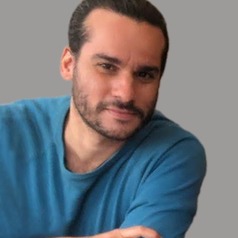
Guilherme Riccioppo Magacho
Chercheur en économie environnementale, Agence française de développement (AFD)
Guilherme Magacho travaille principalement sur des analyses « entrée-sortie » et des modèles macroéconomiques dynamiques pour identifier les risques systémiques et évaluer l'impact des politiques publiques. Ses travaux portant particulièrement sur la transition écologique, il cherche à comprendre, à travers le modèle GEMMES, les principales contraintes économiques dans les pays en développement afin de promouvoir un développement durable et inclusif.
Guilherme Magacho est titulaire d'un doctorat en économie territorial de l'Université de Cambridge, au Royaume-Uni. Sa thèse porte sur l'importance de la composition structurelle du commerce et de la production pour soutenir une croissance économique inclusive à long terme. Il y compare la composition sectorielle de l’économie des pays d'Amérique latine et d'Asie de l'Est et du Sud-Est et il évalue les conséquences de différents modèles d'industrialisation pour le développement à long terme. Il est également chercheur associé au Cambridge Center for Economic and Public Policy (CCEPP) et à la Fondation Getulio Vargas (FGV), où il travaille sur des études portant sur le changement structurel et la macroéconomie.
Avant de rejoindre l'AFD, il était économiste à la Fédération des industries de l'État de São Paulo (FIESP) et consultant pour les gouvernements régionaux et fédéraux brésiliens. Il a également été professeur à l'Université fédérale de l’ABC (UFABC) et à la Faculté de Campinas, au Brésil, où il a enseigné l'économie industrielle, l'économie internationale, la macroéconomie et l'économétrie.
Less ![]()
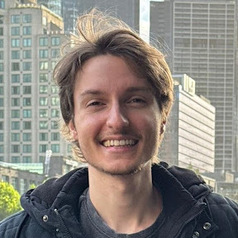
Guilherme Camargo de Oliveira
PhD Candidate, School of Engineering, RMIT University
Machine Learning Engineer and Data Scientist, currently pursuing a Ph.D. in Engineering from RMIT University (2024). I have industry experience, where I deployed AI models and optimized image generation, and improved business pipelines using NLP. My research at RMIT includes developing diagnostic tools for Parkinson’s, Stroke, and AMD, with multiple publications. Proficient in Python, Docker, AWS, and machine learning frameworks, I hold several certifications in AI and data science. My expertise spans deep learning, generative AI, and recommendation systems.
Less ![]()
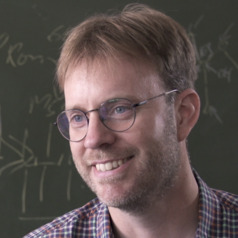
Guillaume Cabanac
Professeur des universités, Institut de Recherche en Informatique de Toulouse
Professeur d'informatique à l'Université Toulouse 3 – Paul Sabatier
Membre de l'Institut Universitaire de France (IUF)
Chercheur à l'Institut de recherche en informatique de Toulouse (IRIT)
Less ![]()

Guillaume Carton
Professeur associé en Stratégie, EM Lyon Business School
Guillaume Carton est professeur associé en Stratégie à emlyon business school
Less ![]()
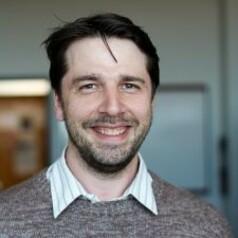
Guillaume Dandurand
Postdoctoral Fellow, Shaping AI, Institut national de la recherche Scientifique (INRS)
I am a political anthropologist interested in science and technology studies. During my PhD, I examined the techno-politics of the right to food in India. My research received two accolades: York University's best dissertation award (2019) and a place on the shortlist of the International Convention of Asian Scholars's Best Dissertation Award (2018-21).
Since then, my research interests turned towards the social construction of AI. First, I completed a first postdoctoral fellowship (Centre interdisciplinaire de recherche sur la science et la technologie; 2018-2020). In collaboration with a transnational humanitarian organization, my ethnographic research focused on digital humanitarianism and the introduction of AI in humanitarian workflows.
Then, I pursed my academic journey on a multinational and multidisciplinary project called Shaping 21st Century AI, at the Institut national de la recherche scientifique (INRS; 2020-23). Specifically, my research looks at the social construction of Ai in Canadian legacy media between 2012 and 2021. On April 17 2023, after two years of qualitative and quantiative research, we are launching the first report of the project called Training the News: Coverage of Canada's Hype Cycle (2012-2021).
My work has been published in PoLAR, Engaging STS, Réseaux, and Le Devoir. I also have published an edited book called Attentes et promesses technoscientifiques (PUM, 2022).
Less ![]()

Guillermo Candiz
Assistant Professor, Human Plurality, Université de l'Ontario français
Guillermo Candiz is a Ph.D. in geography from Université Laval, an assistant professor in human plurality at the Université de l’Ontario français, and a member of the Canada Research Chair on Global Migration Dynamics. His research focuses on the migratory projects and trajectories of irregular migrants in Americas and Morocco. His doctoral and post-doctoral work was funded by the Social Sciences and Humanities Research Council of Canada (SSHRC) and Fonds de Recherche du Québec — Société et culture (FRQSC). Dr. Candiz has also conducted research on migrant farmworkers in the Quebec region and Mexico, and on intergenerational care. He has published several scientific research articles in academic and popular science journals and books. His most recent publications are "The right to the city or the right to mobility? Central American asylum seekers waiting in the urban space of Tijuana". The Canadian Geographer (2021); Intensity and Uncertainty: Performing Border Conflicts at the US-Mexico Borderlands. Population, Space and Place (2021) and Containing mobile citizenship: changing geopolitics and its impact on solidarity activism in Mexico. Citizenship Studies (2020), co-authored with Tanya Basok.
Less ![]()

Guillermo López Lluch
Catedrático del área de Biología Celular. Investigador asociado del Centro Andaluz de Biología del Desarrollo. Investigador en metabolismo, envejecimiento y sistemas inmunológicos y antioxidantes., Universidad Pablo de Olavide
Doctor en Biología por la Universidad de Córdoba en 1997.
Estancia Posdoctoral en el University College de Londres; Rayne Institute, Department of Molecular Medicine gracias a una Beca Marie Curie de la Comisión Europea.
Profesor de la Universidad Pablo de Olavide desde 1998.
Investigador asociado del Centro Mixto (CSIC-UPO-JA) Centro Andaluz de Biología del Desarrollo desde su inicio.
Less ![]()
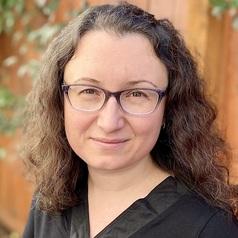
Gulcan Cil
Senior Statistician, Oregon Health & Science University
Gulcan Cil is a senior statistician and health policy researcher at the Center for Evidence-based Policy at Oregon Health & Science University and an Associate Scientist at Oregon Research Institute. She has a PhD in economics with a focus on advanced data analytic methods and health economics.
Her expertise is in using data from administrative records for research and advanced statistical methods for improved causal inference. She is particularly interested in policy evaluation in terms of their impacts on individual behaviors and outcomes, and assessment of the effects of different environmental and behavioral factors on health. She also has expertise in performing cost effectiveness analyses for school- and community-based interventions targeting health and educational outcomes.
Less ![]()
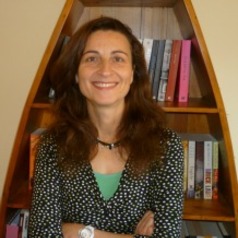
Gulcin Ozkan
Professor of Economics, University of York
I am an academic economist at the University of York. I hold a BSc in Economics from METU, Ankara Turkey and MSc in Economics from the University of Warwick. I completed my PhD at York and have taught at various institutions, including University of Durham, METU, and University of York where I currently hold a Chair in Economics.
My main research interests are macroeconomics, political economy and international finance. More specifically my research has focussed on currency and financial crises, monetary policy, politics and policy making and more recently macroprudential policy and fiscal austerity.
Less ![]()

Gulshanara (Rumy) Begum
Senior Lecturer in Nutrition & Exercise Science, University of Westminster
Less ![]()
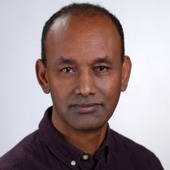

Gumersindo Feijoo Costa
Catedrático de Ingeniería Química. Centro Singular CRETUS, Universidade de Santiago de Compostela
Catedrático de Ingeniería Química en la Universidad de Santiago de Compostela (USC) desde el año 2008. Desarrolla su actividad investigadora en el Centro Singular CRETUS de Tecnología Ambientales, fundamentalmente relacionada con la aplicación de los conceptos de evaluación del ciclo de vida, huellas ambientales y economía circular al desarrollo de productos y procesos. Esta actividad ha dado lugar a la supervisión de 27 tesis doctorales, cuyos egresados trabajan en diversas empresas e instituciones: AZTIC, CETAQUA, CETIM, CLEARIVER VENTURES, CONTACTICA, FEUGA, Fundación ONCE, IMDEA, INDITEX, ITENE, LACTOGAL, Opel (Alemania), Pontificia Universidad Católica del Perú, Universidad de Antioquía (Colombia), Universidad Federico Santamaría (Chile), Universidad de Manchester, Universidad de Niza y Universidad de Santiago de Compostela.
El impacto de la actividad investigadora se refleja en más de 400 publicaciones (con un índice h = 68 -base de datos Scopus-), reconocido en diversos rankings de investigación como pertenecer al 2% de los científicos más citados del mundo según el denominado "Ranking Stanford" o al ranking de investigadores españoles del CSIC.
El impacto social de la actividad puede establecerse según varios indicadores: (1) 165 citas en 125 documentos de estrategia política ambiental de la Comisión Europea y de 25 países (Alemania, Argentina, Australia, Canadá, EE.UU., España, Francia, Irlanda, Nueva Zelanda, Países Bajos, Reino Unido); (2) 40 contratos de I+D+i con empresas públicas y privadas y (3) 8 patentes o marcas de garantía de calidad (2 en explotación) reconocidas por la Oficina Española de Patentes y Marcas, la Oficina Europea de Marcas y la Agencia de Patentes de EE.UU.
Destaca su actividad divulgadora en medios de comunicación, charlas y conferencias en centros de enseñanza secundaria y universitaria, así como en foros organizados por diversas instituciones sociales.
• Portal de Investigación de la USC : https://investigacion.usc.gal/investigadores/58858/detalle?lang=es
• Google Académico: https://scholar.google.es/citations?hl=es&user=mxyLWl4AAAAJ
Less ![]()
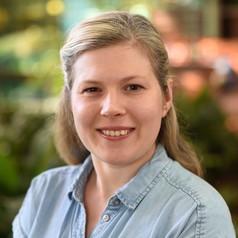
Gunn-Helen Moen
Post-doctoral research fellow in genetic epidemiology, The University of Queensland
I was awarded my PhD on the "Genetic and environmental etiology of glucose metabolism and cardiometabolic traits during pregnancy and in later life" in 2019 from the Faculty of Medicine at the University of Oslo. After finishing my PhD, I was awarded a Mobility/Marie Sklodowska-Curie Fellowship from the Research Council of Norway and as part of that fellowship I spent two years as a visiting academic at the University of Queensland. I am currently an ARC DECRA fellow at Institue for Molecular Bioscience at University of Queensland. My research focus is on using genetics to investigate the possible causal effects of maternal environmental exposures during pregnancy on offspring outcomes.
Less ![]()
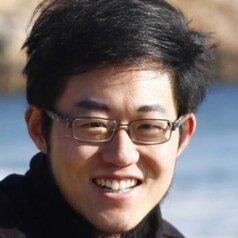
Guosong Hong
Assistant Professor of Materials Science and Engineering, Stanford University
Guosong Hong's research aims to bridge materials science and neuroscience, and blur the distinction between the living and non-living worlds by developing novel neuroengineering tools to interrogate and manipulate the brain. Specifically, the Hong lab is currently developing ultrasound, infrared, and radiofrequency-based in-vivo neural interfaces with minimal invasiveness, high spatiotemporal resolution, and cell-type specificity.
Dr. Guosong Hong received his PhD in chemistry from Stanford University in 2014, and then carried out postdoctoral studies with at Harvard University. Dr. Hong joined Stanford Materials Science and Engineering and Neurosciences Institute as an assistant professor in 2018. He is a recipient of the NIH Pathway to Independence (K99/R00) Award, the MIT Technology Review ‘35 Innovators Under 35’ Award, the Science PINS Prize for Neuromodulation, the NSF CAREER Award, the Walter J. Gores Award for Excellence in Teaching, and the Rita Allen Foundation Scholars Award.
Less ![]()
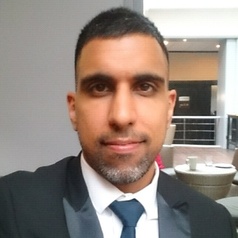
Gurpinder Singh Lalli
Reader in Education for Social Justice and Inclusion, University of Wolverhampton
Gurpinder is a Reader in Education for Social Justice and Inclusion in the School of Education. Trained as a sociologist and ethnographer, he has a track record on conducting research on the school meals service with a focus on inequity in education. He is the research hub lead for Education, Leadership and Social Justice. He is module lead for Critical Approaches to Diversity, Equality and Social Justice in Education (7ED002, MA Education). He has led doctoral students to completion and is currently supporting students as Director of Studies.
Gurpinder completed a PhD in Education at the University of Leicester following the award of a studentship. He authored the award-winning book titled, Schools, Food and Social Learning (Routledge, 2019), co-authored School Farms: Feeding and educating children (Routledge, 2021). He wrote his second monograph titled, Schools, Space and Culinary Capital (Routledge, 2022). He led an edited collection, titled Food Futures in Education and Society (Routledge, 2023) and currently co-leading an edited collection titled, 'The Social Nature of Food in India'.
Gurpinder is editor for Educational Research and Evaluation (ERE) and Book Series Editor for Sociological Perspectives on Food & Culture (Berghahn Publishing). He serves on a number of leading education and sociology editorial boards which include: British Journal of Sociology of Education, Cambridge Journal of Education, International Studies in Sociology of Education and British Journal of Educational Studies. He is a member of the Executive Committee for the Society for Educational Studies (SES, 2022-present). He is a Visiting Research Fellow in the Faculty of Educational Sciences at the University of Helsinki.
He is co-investigator on the first detailed historical and ethnographic study of the UK School Meals Service with a particular focus on the lived cross-generational experience of those receiving and preparing school meals. Funded by the Economic and Social Research Council ESRC), the study is titled 'The School Meals Service - Past, Present and Future?' (Grant no: ES/X000737/1, 2023-2025) and awarded £1 million.
Less ![]()

Gurpreet Singh
Assistant Professor of Physical Therapy, Binghamton University, State University of New York
Gurpreet Singh joined Binghamton University's Decker College of Nursing and Health Sciences in September 2021 as an assistant professor in the Division of Physical Therapy.
He is a physical therapist with 16 years experience, with particular expertise in the areas of neurology and geriatrics.
Singh spent seven years practicing and as a PhD candidate at the Parkinson’s Disease and Movement Disorders Center at the University of Kansas Medical Center, one of the National Centers of Excellence. There, he worked with individuals with Parkinson’s Disease and other neurodegenerative disorders.
His academic experience includes seven years teaching in physical therapy programs, where he focused on the adult neuromuscular system, neuropathology, biomechanics and analyzing professional literature in physical therapy.
Less ![]()

Gustav Agneman
Associate Professor, Department of Economics, Norwegian University of Science and Technology
Less ![]()
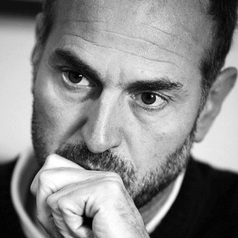
Gustavo Morello
Professor of Sociology, Boston College
I do sociology of religion, focused on Latin America. I'm interested in the 'lived religion' approach as a way to find alternative theoretical models to Secularization and Religious markets; since I think those models do not account for what's going on in the religious sphere.
Less ![]()

Gutiérrez - Cortines Carmen Isolina Egea
Profesora Políticas Públicas y Unión Europea, Universidad Francisco de Vitoria
Licenciada en Derecho por la Universidad de Murcia. Asesora en el Parlamento Europeo (2003 - 2007 y 2019 - 2022). Gerente de fundación sanitaria (2010 - 2016)
Less ![]()
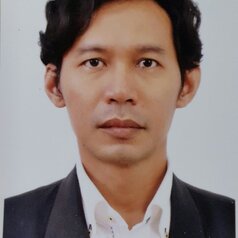
Gutomo Bayu Aji
Peneliti Bidang Kependudukan, Badan Riset dan Inovasi Nasional (BRIN)
Gutomo Bayu Aji is a senior researcher at the Population Research Center, BRIN. His academic background is in Anthropology and has more than twenty years of research experience. His field of research is youth studies and agrarian issues.
Less ![]()
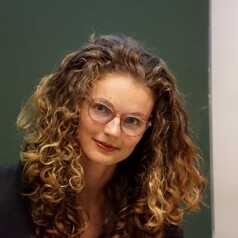
Guusje Haver
PhD Candidate, Department of Clinical Neuroscience, Karolinska Institutet
Guusje Haver is a medical doctor and PhD candidate at Karolinska institutet, working on a large randomized controlled trial using psilocybin in depression.
Less ![]()
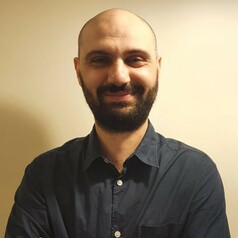
Güven Demirel
Senior Lecturer in Supply Chain Management, Queen Mary University of London
Dr Güven Demirel is a Senior Lecturer in Supply Chain Management at Queen Mary University of London. He holds a PhD in Physics from the Max Planck Institute for the Physics of Complex Systems, Dresden, Germany and conducts interdisciplinary research on complex systems. His recent research focuses on the stability, resilience, and sustainability of supply networks; the effectiveness of supplier development programs, and innovation in supply chains.
Less ![]()
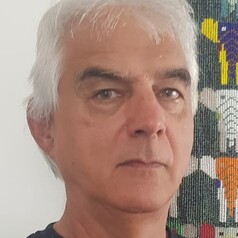
Guy Berger
Professor Emeritus, Rhodes University, Rhodes University
Guy Berger is Professor Emeritus, Rhodes University, South Africa; Distinguished Fellow Research ICT Africa; and DigiPol Fellow at the University of Liverpool. He spent 2011-2022 as a senior director at UNESCO, overseeing the organization's policy work in freedom of expression, safety of journalists, media development and digital governance. He is a media activist and public intellectual focusing on African issues. He posts at LinkedIn https://www.linkedin.com/in/guy-berger-b641b2/recent-activity/all/
Less ![]()


Guy German
Associate Professor of Biomedical Engineering, Binghamton University, State University of New York
Guy is an Associate Professor in the Department of Biomedical Engineering with courtesy appointments in the Department of Pharmaceutical Sciences and the Decker School of Nursing. Guy received his combined undergraduate and Masters degree in Astrophysics from the University of Edinburgh in 1999 and a Masters degree in Aerospace Dynamics from Cranfield University in 2001. He received his Ph.D. in Mechanical Engineering in 2009 from the University of Edinburgh for his research exploring the drop dynamics of yield-stress fluids. Guy was a Postdoctoral Associate in Prof. Eric Dufresne's Soft Matter Lab in the Department of Mechanical Engineering and Materials Science at Yale University between 2009 and 2012. He has also worked in industry for over 6 years as an aerodynamicist for Airbus U.K. and a senior engineering consultant for I.D.E.A.S. Ltd in Glasgow, Scotland.
Less ![]()
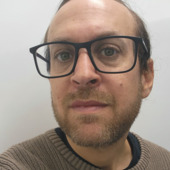
Guy Gillor
Honorary Fellow, School of Population and Global Health, The University of Melbourne
Less ![]()
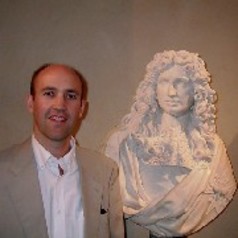
Guy Rowlands
Professor of History, University of St Andrews
Guy Rowlands’ research interests lie principally in late seventeenth- and eighteenth-century military, naval, financial and French history.
His first book, The Dynastic State and the Army under Louis XIV. Royal Service and Private Interest, 1661 to 1701 (Cambridge University Press, 2002), used political, social, cultural and military approaches to examine how Louis XIV and his ministers were able to increase the size of the French army five-fold over a period of 30 years, and it stressed the importance of integrating the multiple private interests of noble families into calculations of how to organise the state. This book was co-winner of the Royal Historical Society’s Gladstone Prize in 2003.
His recent work has been on early eighteenth-century financial history. His second book, entitled The Financial Decline of a Great Power. War, Influence, and Money in Louis XIV's France (Oxford University Press, 2012), places military paymasters and suppliers at the centre of an explanation of how and why the French state’s financial situation deteriorated dramatically during the War of the Spanish Succession. Louis XIV bequeathed a legacy of debt generated in this war to his successors that made an ultimate breakdown of government much more likely. The book focusses, as no book on early modern state finances has done before, on the full range of state financial activity – taxation, borrowing, monetary policy, the appropriations system and expenditure – to explain how things went so badly wrong.
His third book, Dangerous and Dishonest Men: the International Bankers of Louis XIV’s France (Palgrave, 2014), follows up the previous study by looking at the extraordinary but damaging role played by foreign exchange and international bankers in France’s eighteenth-century troubles. At the start of the eighteenth century Louis XIV needed to remit huge sums of money abroad to support his armies during the War of the Spanish Succession. This book explains how international bankers moved French money across Europe, and how the foreign exchange system was so overloaded by the demands of war that a massive banking crash resulted.
Prof. Rowlands is currently in negotiation with a major press for the production of a work of grand synthesis on “War and the State in the Early Modern European World”. He is planning a bid to funding councils for a major project on the emerging western European states, military power and the civilian contractors who serviced and supplied their armed forces in the period 1660-1730. In recent decades the defence establishments of the NATO powers have employed civilian contractors for logistical tasks on a very large scale once again, but there seems to be a real lack of appreciation that so many of these arrangements have been tried before, and particularly so once the state started to emerge in a recognisably modern form after the mid-seventeenth century. As part of this he is already working on another book on arms, artillery and absolute monarchy in Louis XIV’s France.
In the longer term he is working towards a comprehensive, international history of logistics from the mid-17th century to the present day. Prof. Rowlands also has extensive interests in European international and transnational relations between the 1660s and the outbreak of the French Revolution (1789), and he maintains an interest in Jacobitism on the continent between 1688 and 1720.
Less ![]()
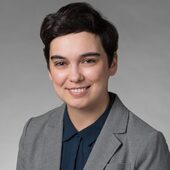
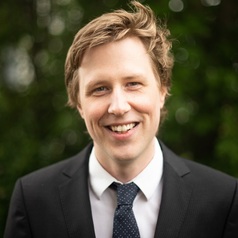
Guðmundur Kári Stefánsson
NASA Hubble Fellow, Department of Astrophysical Sciences, Princeton University
I use next-generation instruments to better detect and characterize planets orbiting nearby stars, with a particular focus on planets orbiting low-mass stars. To study these worlds, I leverage data from two precision radial velocity spectrographs I helped design and deploy—the near-infrared Habitable-zone Planet Finder (HPF) on the 10m Hobby-Eberly Telescope, and the optical NEID spectrograph on the 3.5m WIYN Telescope—along with the diffuser-assisted photometry technique, a low-cost method I have shown is capable of approaching space-quality photometry from the ground.
Less ![]()
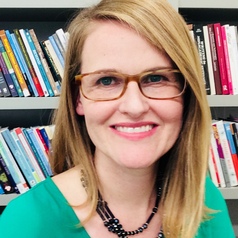
Gwendolynne Reid
Assistant Professor of English, Emory University
Gwendolynne Reid is a scholar in rhetoric, composition, and writing studies, with a focus on writing in the disciplines, genre studies, and digital writing.
Dr. Reid’s courses include writing and inquiry in the liberal arts, writing and inquiry in the liberal arts for multilingual students, rhetorical studies, and a discovery seminar on digital natives and digital literacies. She also frequently oversees students in self-directed studies in individual topics, and she is a participating faculty member in the Oxford Research Scholars program. Her students have published in edited collections, textbooks, and the undergraduate journal Young Scholars in Writing and presented at conferences such as the National Conference of Undergraduate Research.
A frequent presenter and panelist at academic conferences, Reid is a founding member of the Association for Writing Across the Curriculum and a member of the International Society for the Advancement of Writing Research, the National Council of Teachers of English, the Conference on College Composition and Communication, the Council of Writing Program Administrators, and the Small Liberal Arts Colleges-Writing Program Administrators. She currently serves as co-chair of the CCCC Standing Group on Writing and STEM.
Reid received a BA degree in intercultural studies summa cum laude from Bard College at Simon’s Rock, an MA degree in English from North Carolina State University, and an MA in screenwriting and film studies from Hollins University. Reid taught writing and rhetoric courses at North Carolina State University for a decade and joined the faculty of Oxford College in 2017 after receiving a PhD in communication, rhetoric, and digital media from North Carolina State University in 2017.
Education
PhD North Carolina State University 2017
MA North Carolina State University 2005
MA Hollins University| 2005
BA Bard College at Simon's Rock 1999
AA Bard College at Simon's Rock 1997
Research Interests
My research focuses on the role of writing and rhetoric in human understanding and specifically on the role of writing in the construction of disciplinary knowledge. Because genres and writing practices have changed in response to new media environments and communication technologies, my special focus is on digital writing in the disciplines. My interests stem largely from many years of teaching undergraduates about disciplinary writing and research and the realization that today’s students and communicators must adapt to increasingly complex communication environments.
Less ![]()
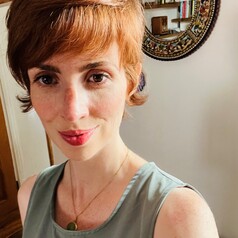
Gwennan Higham
Senior Lecturer in Welsh, Swansea University
Gwennan Higham specialises in Welsh sociolinguistics, particularly the linguistic integration of international migrants in Wales. Her research is international in scope, including comparative work with French in Quebec. Her most recent publication is 'Developing personal integration projects through a Welsh language provision for adult migrants in Wales' (2024). Her work has also been published in prominent peer-reviewed journals including Language Policy and Journal of Multilingual and Multicultural Development.
Less ![]()
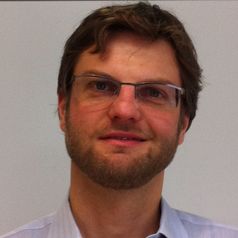
Gwilym Croucher
Dr Gwilym Croucher is a higher education researcher, analyst and policy adviser at the University of Melbourne. He is a Senior Lecturer in the Melbourne Centre for the Study of Higher Education as well as Principal Policy Adviser in Chancellery at the University. Previously he has worked as a researcher and lecturer in policy and political studies, as well as holding administrative positions in higher education. Gwilym is a regular media commentator on higher education and is currently a Chief Investigator on an ARC Discovery Project examining the origins and effects of the Unified National System of Higher Education in Australia.
Less ![]()
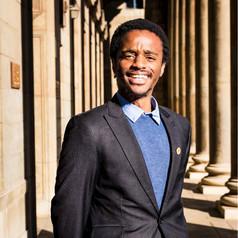
Gwinyai Regis Taruvinga
Postdoctoral research fellow, University of the Witwatersrand
Dr Gwinyai Regis Taruvinga is a postdoctoral research fellow at the Global Change Institute, University of the Witwatersrand (Wits). His academic work focuses on water governance, the colonial legacies in Africa, and climate change, with a particular emphasis on Zimbabwe and South Africa. He holds a PhD in political studies from Wits, where his dissertation explored the intersection of water governance and colonial legacies in Zimbabwe. Dr Taruvinga has published extensively on governance, decentralisation, and the political dynamics of Africa, contributing to journals such as Politeia and The Strategic Review for Southern Africa. His academic roles include lecturing on topics such as political studies, governance, and research methods at both undergraduate and postgraduate levels.
Less ![]()

Gwo-tzer Ho
Reader and Honorary Consultant Gastroenterologist, The University of Edinburgh
I currently lead up the Gut Research Unit in the Institute of Repair and Regeneration, University of Edinburgh.
I trained in Medicine in Glasgow (MBChB 1997 and MRCP 2000), and moved to Edinburgh for my PhD with Jack Satsangi (2000-2003). I completed my specialty training in gastroenterology and internal medicine in Edinburgh (2003-2008) and was awarded an MRC Clinician Scientist Fellowship award (2009-2015) where I trained under Balfour Sartor in University of North Carolina, Chapel Hill, USA focusing on mucosal immunology in IBD. In 2018, I set up the Edinburgh IBD Science group and then the Gut Research Unit in CIR (2019).
With a strategic translational focus on human experimental work, my program supports a comprehensive portfolio of work across Scotland from basic discovery science to Phase 2 clinical trials in adults and children with IBD.
I continue to care for individuals with IBD working as an active consultant gastroenterologist at the Western General Hospital.
Less ![]()

Gwyneth Moore
Course coordinator - BA (Hons) Fashion Business & Marketing & BA (Hons) Fashion Design, University of South Wales
Gwyneth has spent more than 25 years working in public relations, marketing and communications. She has worked with a number of international brands spanning many sectors including fashion, technology and construction. She holds a Bachelor of Arts Degree in English and Communications from the University of Western Australia and studied Fashion Design and Illustration at East Sydney Technical College (now National Art School).
She has worked as a lecturer in fashion promotion, design and brand development, social media, digital fashion and the digital workplace. She is currently Course Leader of the BA (Hons) Fashion Business & Marketing and BA (Hons) Fashion Design courses at the University of South Wales in Cardiff.
Gwyneth has been an active fashion blogger for a number of years at www.cardifffashion.com and is a regular contributor on national radio.
Gwyneth is the author of the Bloomsbury title - Fashion Promotion: Basics Fashion Management 02: Fashion Promotion – building a brand through marketing and communication
Less ![]()
- Market Data





















